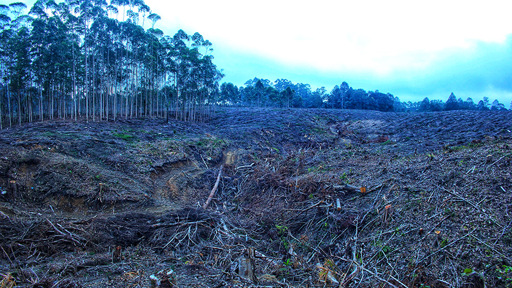JAKARTA — Indonesia is testing whether one of the world’s most powerful timber certifiers can deliver justice — or merely a reset — to forest communities harmed by industrial logging. At stake is the credibility of the Forest Stewardship Council’s (FSC) first-of-its-kind “remedy framework,” an ambitious mechanism that allows logging companies stripped of certification to regain it — but only if they repair the environmental and social damage they’ve caused. But early implementation has exposed cracks — particularly in how past harms are assessed. The FSC is the world’s most recognizable ethical wood certifier, whose logo of a green checkmark and tree is widely used to assure consumers of sustainable sourcing and appears on forestry products — from furniture to paper — worldwide. Under the remedy framework that was adopted in 2023, forestry companies can obtain or regain sustainability certificates if they remedy past environmental and social harms. Two of Indonesia’s largest forestry firms have entered this process, making the country a global testing ground for what could become a new model of corporate accountability, opening the door to restoring millions of hectares of forests, and bringing restitution to thousands of affected communities. FSC director-general Subhra Bhattacharjee told Mongabay that the Indonesian context will highlight the framework’s limitations and the need to customize it to local conditions, “because what works in Indonesia won’t work in another country — but the processes will.” Area of natural forest near a river cleared by PT Toba Pulp Lestari (TPL). Toba Pulp Lestari in…This article was originally published on Mongabay
From Conservation news via this RSS feed


